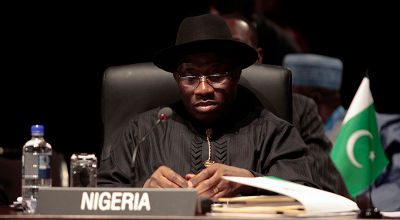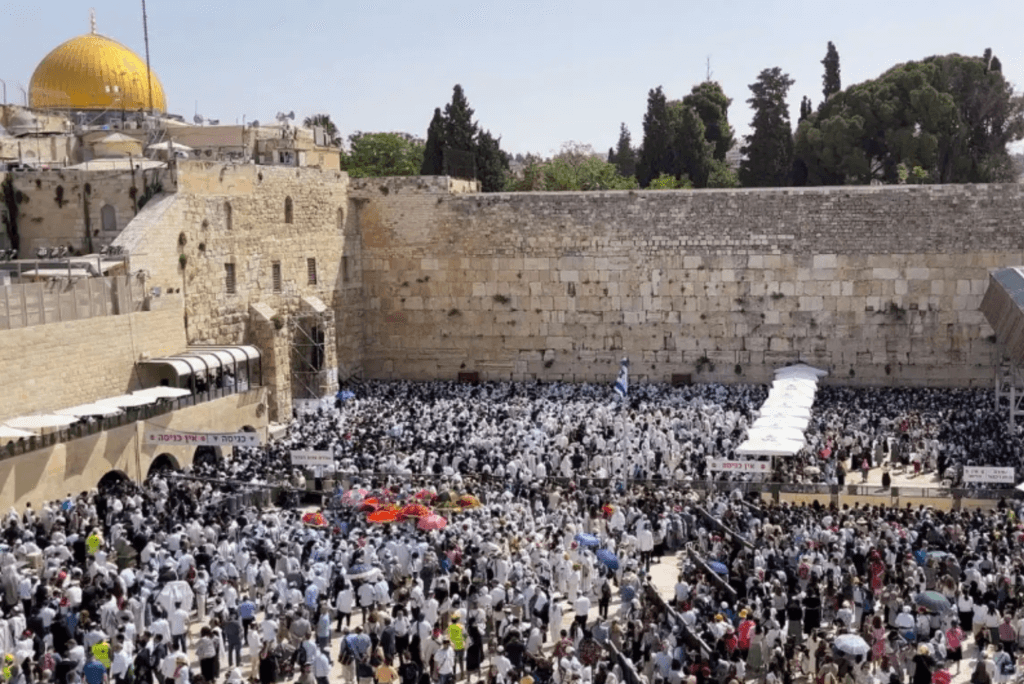A month ago, Nigerian President Goodluck Jonathan said he would not negotiate with the militant Islamic sect Boko Haram because they were “ghosts,” faceless adversaries who would not step forward.
That was then. On Wednesday the president is scheduled to formally inaugurate a committee to explore amnesty for Boko Haram in return for the end of a four-year uprising that has killed thousands of Nigerians.
Suggested by the spiritual leader of Nigeria’s Muslims, studied by a national security panel, and encouraged by the leaders of Nigeria’s ravaged Northern states crucial to the President’s political future, amnesty is now a real prospect for an armed group that has declared its desire to replace the Nigerian state, about to celebrate its 100th anniversary, with one built upon Islamic law.
Reaction to Jonathan’s April 17 decision to put the question into the hands of a Presidential committee has been loud and contentious. Most Christian leaders have denounced the idea as a gross injustice, though some have given a qualified endorsement. Muslim reaction is less than unanimous. Boko Haram itself has rejected the idea. Reaction by government officials is split, and at least two committee appointees have refused to serve. And it has intensified tensions between Christian and Muslim youth who are threatening a new wave of sectarian violence.
The Current Situation
Jonathan’s April 17 announcement made headlines across Nigeria. Leadership Nigeria newspapers, quoting Presidential spokesman Reuben Abati, spelled out the basic details of the committee’s charge:
- “Constructively engage key members of Boko Haram and define a comprehensive and workable framework for resolving the crisis of insecurity in the country,” including disarmament within 60 days;
- Establish a “comprehensive victims’ support program;”
- Explore “mechanisms to address the underlying causes of insurgencies.”
The 26-member committee is made up of government officials, police and military officials, politicians and human-rights activists, according to the Associated Press. Abati said Jonathan would formally inaugurate the committee April 24 at the Presidential Villa in Abuja, the Nigerian capital, according to Leadership Nigeria. It will have 60 days to complete its work.
The AP dryly noted the “ambitious goal” of trying to disarm Boko Haram: “The command-and-control structure of the main extremist network Boko Haram remains unclear. It also has sparked several splinter groups, including those wanting to increasingly target Western interests and who have connections to other al-Qaida-linked groups.”
What is clear is that the violence continues. A firefight erupted Friday between Nigerian soldiers and local militants in the northeastern town of Baga, in the heart of the region where Boko Haram was born. By Sunday, nearly half the town had burned to the ground. The UK’s Telegraph reported that locals claimed 185 people had been killed, though the Army disputed that number and the Red Cross had not yet arrived to confirm the number of fatalities, and by Tuesday the Associated Press had reported that the figure was not being disputed by military officials. There was no public accounting of how many of the dead were civilians, soldiers or rebels.
Background
Nigeria has considered amnesty for insurgent groups before. In 2009, militants in the Nigeria’s southern Delta, upset at the exploitation of the region by oil companies, laid down arms in return for a greater share of the wealth being extracted from the oilfields.
The idea of amnesty for Boko Haram gained traction in March, when the Sultan of Sokoto, Alhaji Sa’ad Abubakar III, proposed it at a meeting of Ja’matu Nasril Islam, or JNI, the main Nigerian Muslim umbrella group. Sokoto, in Nigeria’s northwest, is a seat of Islamic learning and the Sultan is the country’s Muslim spiritual leader. “If amnesty is declared, it will give so many of those young men who have been running and hiding to embrace that amnesty,” he was quoted by Vanguard Media as saying on March 16.
Jonathan was quick to refuse, during a March visit to Yobe state in northeast Nigeria. “You cannot declare amnesty for ghosts,” he was quoted by Premium Times and other news agencies. “Boko Haram still operates like ghosts. So you can’t talk about amnesty for Boko Haram now until you see the people you are discussing with.”
Calls for him to reconsider came from within his own People’s Democratic Party. “Our people are being killed every day, our economy is crippled. We want the President to make a U-turn, grant them amnesty, protect our lives and address the security challenges in the region,” Deputy Senate Leader Abdul Ningi said on behalf of PDP National Assembly members from the northeast, Premium Times reported.
Northern governors and traditional leaders pressed the same message during an April 3 meeting with Jonathan, according to Sahara Reporters, a New York-based news service devoted to exposing what it calls “rampant kleptocracy on the continent of Africa.” Citing “sources at the Presidential Villa,” Sahara Reporters noted that Nigerian military commanders arrived the next day, spending five hours trying to convince the President that amnesty is a bad idea.
The officers were barely out of the palace before the government “set up a technical committee to advise President Goodluck Jonathan on whether to grant amnesty to Boko Haram,” the Catholic News Service reported.
Sahara Reporters struck a sardonic tone: “Although today he seem[s] highly disposed to the amnesty idea, he is known to change his mind fairly easily.”
As the Amnesty Security Committee began its work, lobbying intensified and the amnesty question began to take on a life of its own. The Northern Traditional Rulers Council, led by the Sultan of Sokoto, presented its position paper and met with Jonathan. Military leaders convened again, this time indicating to the committee they would support amnesty only if soldiers remained deployed in dangerous areas. Meanwhile, Leadership Nigeria newspapers reported that governors of four northern states—Bauchi, Yobe, Borno and Gombe—had, on their own, “initiate[d] talks with members of the Boko Haram sect to embrace the amnesty offered them by the federal government,” even though an amnesty plan has not yet been defined, let alone offered.
See an error in this article?
To contact us or to submit an article






















